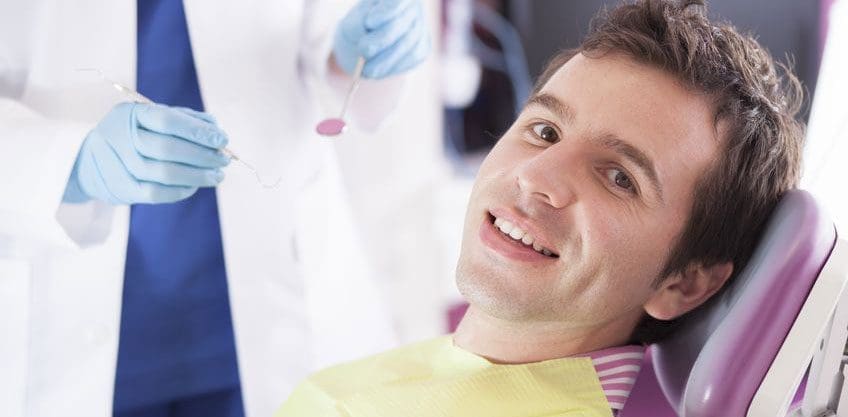How Can Preventive Dentistry Help Maintain Your Oral Health?
Teeth, just like any other part of the body, can be protected against disease, decay, or loss. Preventive dentistry encompasses a variety of techniques and practices used by dental professionals to ensure teeth and gums stay healthy throughout a lifetime. It’s a proactive approach to oral care that benefits individuals of all ages.
Why Preventive Dentistry?
The primary goal of preventive dentistry is to maintain good oral health and hygiene to reflect positively on general health. This approach focuses on avoiding all types of dental problems such as:
- Dental caries (tooth decay):Preventing cavities through regular cleanings and fluoride treatments.
- Gum diseases: Avoiding conditions like gingivitis and periodontitis.
- Enamel wear and tear: Protecting the teeth’s outer layer from erosion.
- Injury repair: Addressing minor damages early to prevent long-term issues.
Preventive dentistry also addresses the link between oral health and other physical conditions such as heart disease, lung infections, diabetes, and even brain disorders. The earlier preventive measures are adopted, the better the outcomes.
Benefits of Preventive Dentistry for Children
Preventive dentistry is especially beneficial for children because it lays the foundation for lifelong oral health habits. Introducing children to dental care at an early age helps in:
- Early detection of issues:Regular check-ups can identify potential problems like crowded teeth or delayed tooth loss, enabling timely intervention.
- Establishing habits: Teaching proper brushing and flossing techniques creates a foundation for lifelong oral hygiene.
- Reducing dental anxiety: Familiarising children with the dentist’s office can alleviate fears associated with dental visits.
- Protecting temporary teeth: Ensuring healthy baby teeth helps pave the way for well-aligned permanent teeth.
Preventive Measures for Children
1. Space Maintainers:
- If a baby tooth is lost prematurely, dentists can use space maintainers to prevent neighbouring teeth from shifting into the vacant spot, ensuring the proper alignment of permanent teeth.
2. Fluoride Treatments:
- Fluoride strengthens tooth enamel and reduces the risk of cavities, particularly in children who are still developing oral hygiene habits.
3. Dental Sealants:
- Sealants are protective coatings applied to the chewing surfaces of molars and premolars to shield them from decay.
4. Early Extractions:
- If baby teeth do not fall out naturally, surgical removal may be necessary to make space for permanent teeth and prevent crowding or misalignment.
Preventive Dentistry for Adults
Adults also benefit significantly from preventive dentistry as it helps maintain optimal oral health and avoids costly treatments. Key measures include:
1. Regular Brushing and Flossing:
- Brushing twice a day with fluoride toothpaste and flossing daily helps remove food debris and plaque, preventing cavities and gum disease.
2. Routine Dental Check-Ups:
- Scheduling dental visits every six months allows for early detection of issues such as cavities, gum disease, and oral cancer.
3. Deep Cleanings (Oral Prophylaxis):
- Professional cleanings remove plaque and tartar buildup that cannot be addressed by regular brushing alone, promoting gum health.
4. Fluoride Application:
- Fluoride treatments help reduce the risk of decay, particularly in adults with conditions like dry mouth or those prone to cavities.
5. Healthy Diet Choices:
- Limiting sugary foods and drinks reduces the risk of cavities and other dental issues.
Specialised Preventive Procedures
1. Dental Sealants:
- A protective barrier applied to teeth to shield them from bacteria and decay. Particularly useful for molars and premolars with deep grooves.
2. Fluorination:
- The application of fluoride gels helps strengthen teeth, making them more resistant to decay.
3. Enameloplasty:
- Reshaping or recontouring tooth enamel to correct minor imperfections and make it easier to maintain oral hygiene.
4. Orthodontic Assessments:
- Early detection and correction of misalignment issues improve both aesthetics and functionality while preventing complications like improper bite or speech impediments.
Prevention of Gum Disease
Gum disease is a common yet preventable condition that can lead to tooth loss if left untreated. Preventive measures include:
- Regular deep cleaning: Removing plaque and tartar through professional cleanings reduces the risk of gum disease.
- Consistent oral hygiene: Proper brushing and flossing habits prevent bacterial buildup along the gumline.
- Routine monitoring: Dentists can identify early signs of gum disease and provide timely intervention.
Who Can Benefit From Preventive Dentistry?
Preventive dentistry is beneficial for people of all ages:
- Children: Establishing good oral hygiene habits early prevents issues like cavities and crowding.
- Teens and adults: Regular dental visits and cleanings help maintain oral health and catch potential problems early.
- Seniors: As teeth naturally wear down with age, preventive dentistry helps preserve remaining teeth and manage age-related oral health concerns.
Why Preventive Dentistry Saves Time and Money
Preventive dentistry is a cost-effective way to maintain oral health. By addressing minor issues early, patients avoid more expensive and invasive procedures later. For example:
- Early cavity detection can prevent the need for root canals.
- Addressing gum disease promptly avoids tooth loss and the need for dentures or implants.
- Correcting misaligned teeth early prevents the need for complex orthodontic treatments.
Conclusion
Preventive dentistry is an essential aspect of maintaining optimal oral health. From routine cleanings and fluoride treatments to advanced procedures like dental sealants and enameloplasty, preventive care ensures teeth and gums remain healthy throughout life.
By committing to regular dental visits and practising excellent oral hygiene, individuals can avoid serious dental issues and enjoy the benefits of a bright, healthy smile. Whether you’re a parent instilling good habits in your child or an adult looking to maintain your oral health, preventive dentistry is the key to a lifetime of dental wellness.

